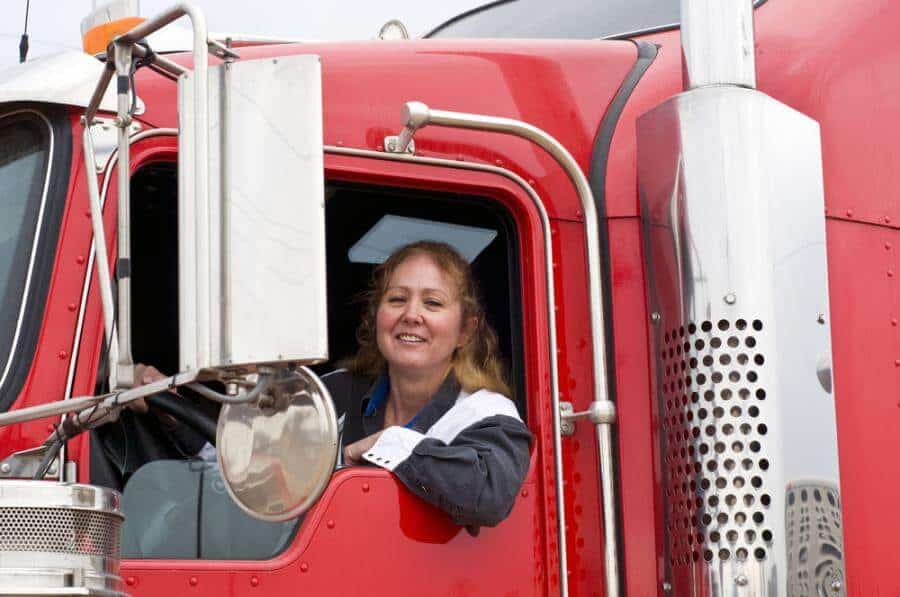Recent Posts by admin
The Rights of Factoring Companies to Brokered Receivables
Protect your Brokerage, Shippers & Industry
Amazon Jumps Into Freight Brokerage
https://www.ttnews.com/articles/amazon-jumps-freight-brokerage
Jim Stinson | Staff ReporterMay 16, 2019 9:30 AM, EDT
Amazon Jumps Into Freight Brokerage
Amazon.com has jumped into the market of the third-party logistics broker, roiling the waters and raising concern that the Seattle-based e-commerce giant could disrupt the freight industry forever and indelibly.
Amazon’s new freight-hauling site — located at freight.Amazon.com — has been up and running since August 2018, but it went largely unnoticed by media until early May, when The Wall Street Journal and others reported on Amazon’s entry into the market. Reports noted Amazon was offering “beta service” full truckload hauling in dry vans. The service is available for pickups in Connecticut, Maryland, New Jersey, New York and Pennsylvania.
Amazon has been brokering freight since 2016, according to Amazon spokesperson Rena Lunak, and the freight site, which offers spot rates, finally went up last summer.
Lunak told Transport Topics that in the flurry of reporting earlier in May, some outlets compared Amazon’s spot rates with contractual rates, which she said was not “apples to apples.”
Amazon officials bristled at the suggestion that the retail giant was using its might to muscle into freight markets and offer discounted rates to grab market share.
“We work with many linehaul service providers in our transportation network and have long utilized them to carry loads for Amazon,” Lunak said in an e-mail statement to TT. “This service, intended to better utilize our freight network, has been around in various forms for quite some time. The analysis suggesting dramatic undercutting of pricing is false.”
As for Amazon’s entry into brokerage, it likely is part of a plan to better execute delivery, say business observers. And by providing logistics, Amazon can lower its shipping costs, one top analyst said.
“It’s all about concentrating buying power,” Armstrong & Associates President Evan Armstrong told TT. “By offering services to shippers, they will increase their purchased transportation spend with providers and be able to garner more trucking capacity at better rates.”

To other analysts, it is part of Amazon’s modus operandi: It’s not personal with freight, it’s just another service Amazon learned along the way. And when Amazon learns something, it begins to sell it. It’s a play Amazon has executed before, said Jeremy Bowman, a writer and analyst with The Motley Fool.
“I think with logistics/freight, they’re following a similar playbook to what they did with Amazon Web Services, fulfillment and other businesses that have become highly profitable for them: Develop a new business/infrastructure to serve the needs of its own massive e-commerce business and from there, once it’s ironed out the kinks, begin selling to whoever’s interested,” Bowman said in an e-mail to TT.
The comparison of Amazon Freight with Amazon Web Services is made often. Amazon started AWS in 2002 to accommodate Amazon’s web business. Eventually, the cloud-computing service was offered outside of house, to other businesses. At the end of 2018, AWS made $25.7 billion in revenue, earning $7.3 billion in net income, according to Amazon’s 2018 financial filings. The company also boasted of new businesses AWS attracted in 2018, with Korean Air and Santander’s Openbank going “all in” with AWS for cloud-computing.
Thus, one analyst wrote it is not that surprising that Amazon now offers freight hauling.
“Twenty years in, Amazon’s modus operandi is clear,” Freightos CEO Zvi Schreiber wrote on his blog. “They build internal tools and then offer them as a service, just like Amazon warehouses were first used for their inventory and then opened up for fulfillment by Amazon [FBA] sellers, trucking will go the same way.”

Schreiber wrote that “[Amazon’s] snowball of success has relied on expanding from one market to the next, leveraging market dominance to penetrate new markets.”
Schreiber later told TT that with 60% of American households signed up for Amazon Prime memberships, “I think they have an unfair advantage that needs to be watched carefully.”
Amazon does things very well, and it wants to control the whole supply chain, from China to the ports to fulfillment centers to home delivery, Schreiber said. And to make money along the entire route, he added.
Bowman told TT that Amazon’s motives may be in-house before they are related to seeing market opportunity in freight, much like AWS. Bowman said past problems with insufficient capacity and speed during holidays likely has led Amazon to want to handle as much in-house freight and delivery as it can.

“And it doesn’t hurt that logistics is a huge industry/opportunity,” Bowman said.
Amazon’s new final-mile standard of one-day delivery means every season is like Christmas, and that means Amazon has to examine its own logistics better.
“To me, with their recent announcement of one-day delivery for Prime members, the company very clearly envisions a huge ramping up in its own need and demand for delivery,” Bowman said. “In order to make sure that goes right, they want to handle as much of it as possible themselves and build that logistics business from there.”
Supplemental Comments – Agency ANRPM for RIN 2126-AC10
Women in Transportation
This is a topic that the team at TFS is reviewing and researching. We hope to have some recorded interviews and/or podcasts soon. If you are a women and work in the industry, please contact us…we want to hear from you!


Truckers are classified as ‘unskilled labor’? Nope

Todd Dills | December 19, 2018
If I’ve heard it once I’ve heard it a thousand times in the back-and-forth commentary over this or that issue, often centered around the issue of compensation: “If the Department of Labor didn’t classify us as unskilled labor …” What typically follows is the notion that this or that issue would be better for drivers.
The video here, from the folks at TruckerNation, does a pretty good job of debunking the notion that truckers fall into an “unskilled” classification, one used in government not by DOL at all, as Andrea Marks explains there, but by the Social Security Administration for various purposes. There, depending on the level of CDL obtained, and considering endorsements, amount of time worked and more, drivers are classified as either “skilled” or “semi-skilled,” she says. Never “unskilled.” It’s worth a watch.
What the video doesn’t get to is what’s typically happened in my own experience talking to folks all around the industry, as hinted at in the first paragraph here. When someone invokes the old “unskilled” notion, asked for some clarification what I’ve most often then heard is an invocation of the reality of the exemption from overtime-pay protections for DOT-regulated motor carrier employee drivers — that exemption was codified as part of the Fair Labor Standards Act of 1938. Follow this link for a clear fact sheet on it.
There’s been no shortage of talk about the seeming absurdity of an industry regulated by the hour but paid by the mile over the years, for sure. More seriously, you don’t have to look far to find past advocacy efforts centered on the notion that removal of the motor carrier exemption from overtime-pay requirements for safety-sensitive workers would force a better standard of compensation for company drivers, and drive better income conditions for owner-operators by extension. (Read owner-operator Joe Ammons’ past such argument here, and some distillation of related changing conditions — how that ELD mandate figures in — via this link. Find some carriers moving to more of a salary-type compensation model, with a miles incentive on top, via my own reporting from earlier in the year; such moves, when true earning potential is there, might be interpreted as a kind of advocacy in and of themselves.) In an industry where much energy is being expended by attorneys and drivers suing carriers over state meal and rest breaks in California, and by motor carrier interests hoping to overturn the outlier court action that is enabling such suits, changing the motor carrier exemption to the FLSA doesn’t seem to figure into compensation conversation so much of late.
What’s your view on it? If the FLSA exemption were removed and carriers were forced to adjust to the reality of overtime pay requirements, do you think your own particular situation in the industry would improve ultimately or not?
You can find the original article at:
Record number of truckers killed in workplace fatalities in 2017

Matt Cole | December 19, 2018
Truck driver occupational fatalities rose in 2017 to the highest number since at least 2003, according to numbers released Tuesday by the Department of Labor’s Bureau of Labor Statistics.
BLS says the 840 truck drivers killed on the job in 2017 represented 77 percent of the 1,084 motor vehicle operators killed on the job last year — the most since it began tracking occupational statistics in 2003. There were 786 truckers killed on the job in 2016.
In total, there were 1,443 fatal injuries in the transportation and material moving occupations in 2017, a nearly 4 percent increase over the 1,388 fatalities in 2016, according to BLS.
BLS’ numbers are in line with those released in October by the National Highway Traffic Safety Administration. NHTSA’s numbers showed there were 841 occupants of large trucks killed in crashes in 2017.
Across all occupations in the U.S., there were 5,147 workplace fatalities in 2017, down slightly from the 5,190 reported in 2016.
Other occupations with high fatalities in 2017 were:
Construction – 965 fatalities
Installation, maintenance and repair occupations – 414 fatalities
Management occupations – 396 fatalities
Building and grounds cleaning and maintenance occupations – 326 fatalities
Original article:
FMCSA to allow year-long learner’s permits for new truck drivers
Some trucking groups argue that this will allow carriers to keep their seats filled with cheaper trainee drivers for longer.

A newly published Federal Motor Carrier Safety Administration (FMCSA) rule will give states the choice to issue learner’s permits that are valid for a full year to truck driver trainees.
In documents to be filed in the Federal Register on Friday, the FMCSA gives states permission — but does not require them — to issue Commercial Learner’s Permits (CLPs) that are valid for a whole year instead of the six months that they are currently valid for.
The new rule also gives states permission to allow trainees to renew their CLP for an additional six months after the one year mark.
If a trainee fails to obtain their CDL before the permit expires, he or she would be required to reapply for their CLP.
When the rule was first proposed by the FMCSA back in June of 2017, the FMCSA argued that it would help to fight the “truck driver shortage.” They also said that the year-long CLPs would cut down on paperwork for states and reduce “hassle and cost” for CDL applicants.
Some trucking groups have spoken out against the year-long CLPs because they believe that it could give carriers a way to keep cheaper trainees behind the wheel for longer. OOIDA’s director of legislative affairs Collin Long said, “We have some concerns about that and how it could be used to keep trainees in that training mode for an extended period of time and pay them significantly less because they don’t have their full CDL.”
OOIDA also argued that relying more heavily on trainees instead of licensed truck drivers would have a negative impact on safety.
Original article can be found at:
https://cdllife.com/2018/new-fmcsa-rule-opens-door-year-long-learners-permits-new-truck-drivers/
Free Webcast from JOC.com: 2019 Trade & Transportation Outlook: A BCO Primer for a Turbulent Year Ahead
Sign up for this free Webcast from JOC.com – a great free webcast for shippers and forecast for where shipping is heading in 2019.
Offered by JOC.com

Register at link below.













